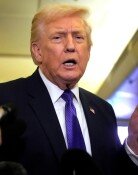FX Row Dominates Agenda at G-20 Seoul Summit
FX Row Dominates Agenda at G-20 Seoul Summit
Posted November. 12, 2010 11:29,
Foreign currencies are the lone hot issue at the G-20 Seoul summit, with disputes over the matter greater than expected.
The meeting of vice finance ministers Wednesday failed to agree on the wording of draft documents to be left for leaders to decide Thursday, the opening day of the summit.
Foreign media focused on currency as they rushed to cover stories on the summit as the debate overshadowed other pivotal issues of the meeting.
○ Foreign media: currency agreement unlikely
Kim Yoon-kyung, spokeswoman for the G-20 organizing committee, said Thursday, G-20 deputies and other senior officials had very heated discussions in meetings running late Wednesday. But almost everything was left in brackets for the leaders to decide because no one could agree. Discussions will continue Thursday after vice finance ministers report progress to their leaders Thursday.
When the heads of state attended the welcoming dinner, they sought to build on their vice finance ministers work and attain a viable framework for sustainable and balanced growth.
Kim said The negotiators are working to advance agreement over currencies from the Gyeongju accord announced by finance ministers last month since they still share common ground on the issue
The currency issue topped foreign media coverage. The Washington Post said the U.S. move to inject funds into the market is hampering G-20 leaders from tackling main agenda items such as trade imbalances and currency.
The major German daily Frankfurter Allgemeine Zeitung said G-20 leaders are unlikely to reach agreement on the guideline for global trade imbalances.
Other foreign media put up headlines like G-20 leaders heading for trade showdown, and War of words over trade.
The leading Japanese daily Asahi Shimbun said the focus of the Seoul summit is whether leaders can agree on tackling current account imbalances.
The Yomiuri Shimbun also said the summit will likely face difficulties in stopping the currency war and improving global economic imbalances.
○ Had it not been currency
In June, Sakong Il, chairman of the Presidential Committee for the G-20 Seoul summit, told reporters after the closing session of the Toronto G-20 summit, Eighty percent of the issues discussed at the Toronto meeting will be finalized at the Seoul summit. For Korea, the November summit is a high-return and high-risk event. If we do well, we can rise high. If we dont, it could harm our reputation.
The Toronto meeting had eight issues unresolved, including reform of international financial organizations and creation of a global financial safety net, and was overshadowed by the more pressing matter of fiscal soundness.
Since the Toronto meeting, agreement on three issues has been reached and the remaining five have seen virtual conclusions. The Gyeongju finance ministers meeting last month agreed on quota reform for the International Monetary Fund, which was later approved by the funds board of directors.
The global financial safety net proposal was also a half-success as the IMF later decided to increase flexible credit lines.
A source at the G-20 organizing committee said, The Seoul summit could have drawn global attention had the financial safety net and IMF quota reform been addressed here in Seoul. These issues could have overwhelmed currency.
The Seoul summit could have been more successful if the currency row had not emerged in September and if the U.S. had not announced additional monetary easing.
A high-ranking Korean government official said, Weve worked hard since Korea was designated the chair country at the fifth G-20 summit in Pittsburgh in September last year. I feel bad that our efforts were overwhelmed by unexpected situations. Were still devoting all of our strength to make the summit successful.
lovesong@donga.com jarrett@donga.com



![17년 망명 끝에, 부모 원수 내쫓고 집권[지금, 이 사람]](https://dimg.donga.com/c/138/175/90/1/wps/NEWS/IMAGE/2026/02/18/133376197.3.jpg)



